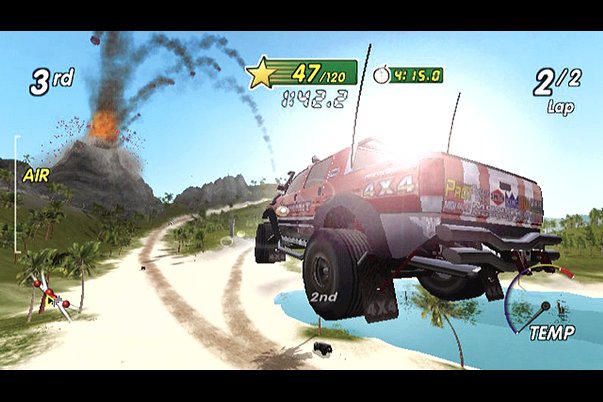Is that it?
Do gamers still want 60-hour epics? Or do good things really come in small packages?
And yet harsh words keep on coming for endlessly deep titles such as Wii Sports and Excite Truck, which are unfairly criticized because they don't patch together their objectives with cutscenes and tutorials. But as these titles prove, it's absolutely fine to ask us to tread the same water again and again - as long as it's fun. And you wouldn't redo it if you hadn't had fun the first time. But the other necessary ingredient proves more problematic, particularly as it's what the titles that directly followed Miyamoto's original "shorter games for the win" speech - Luigi's Mansion and Pikmin - lacked. And that's to provide sufficient motivation for a revisit.

Above: Excite Truck
Of course, the best way to do this is to just make your game incredibly fun - then, gamers can, through sheer force of will, find their own reasons to return - the better the game, the more speed-runs you'll encounter on YouTube. Of course, ensuring that level of playability is often out of the developer's hands (we like to think it's an aspiration they all share in common), but there are multiple ways they can encourage it.
Creating multiple endings is one of the most common ways to achieve replayablity - and one of the laziest, unless it's done as stylishly as the likes of Eternal Darkness. Three times you'll need to complete the game to unlock the final ending - but the game switches it up so radically depending on the ring you choose at the beginning that you'll think it's an entirely different game you're playing.
A better idea still is to forgo the narrative and ensure your levels are dynamic enough to stand up to repeat plays. Games as outwardly conflicting as Super Mario Sunshine and Hitman 2 have this characteristic in common, both containing levels with multiple entry points and paths to success, the difficulty levels of each route staggered so almost everyone can find a method they're comfortable with - the only difference being that Sunshine tests your thumb-tacular agility while Hitman rewards patience and timing.
Weekly digests, tales from the communities you love, and more


